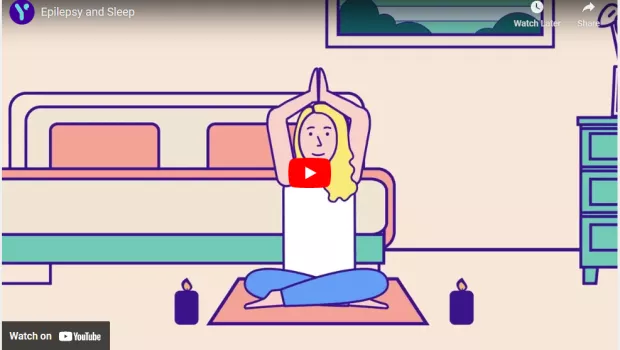Young people with epilepsy often experience disruptions in their sleep, which can have an impact on their learning and behaviour. This page gives a brief overview and includes links to detailed information on other pages.
The impact of disrupted sleep
It is not uncommon for young people with epilepsy to experience disturbances in brain electrical activity during sleep, which may or may not be accompanied by a seizure.
In addition, some anti-seizure medications can cause disturbances to sleep.
Young Epilepsy research (2018) showed that 81% of children with epilepsy were identified as at-risk of sleep difficulties and/or had significant sleep problems.
This suggests young people with epilepsy may struggle to get adequate sleep. This can lead to tiredness the following day, exacerbating any learning and behavioural issues.
Disrupted sleep patterns in young people can interfere with memory formation and emotional learning. This can result in the young person being tired and possibly experiencing problems with memory and emotional wellbeing the following day.
Sleep patterns differ depending on age, so check out this guide to sleep development in young people.
Find out more about how epilepsy affects emotional wellbeing and behaviour.



